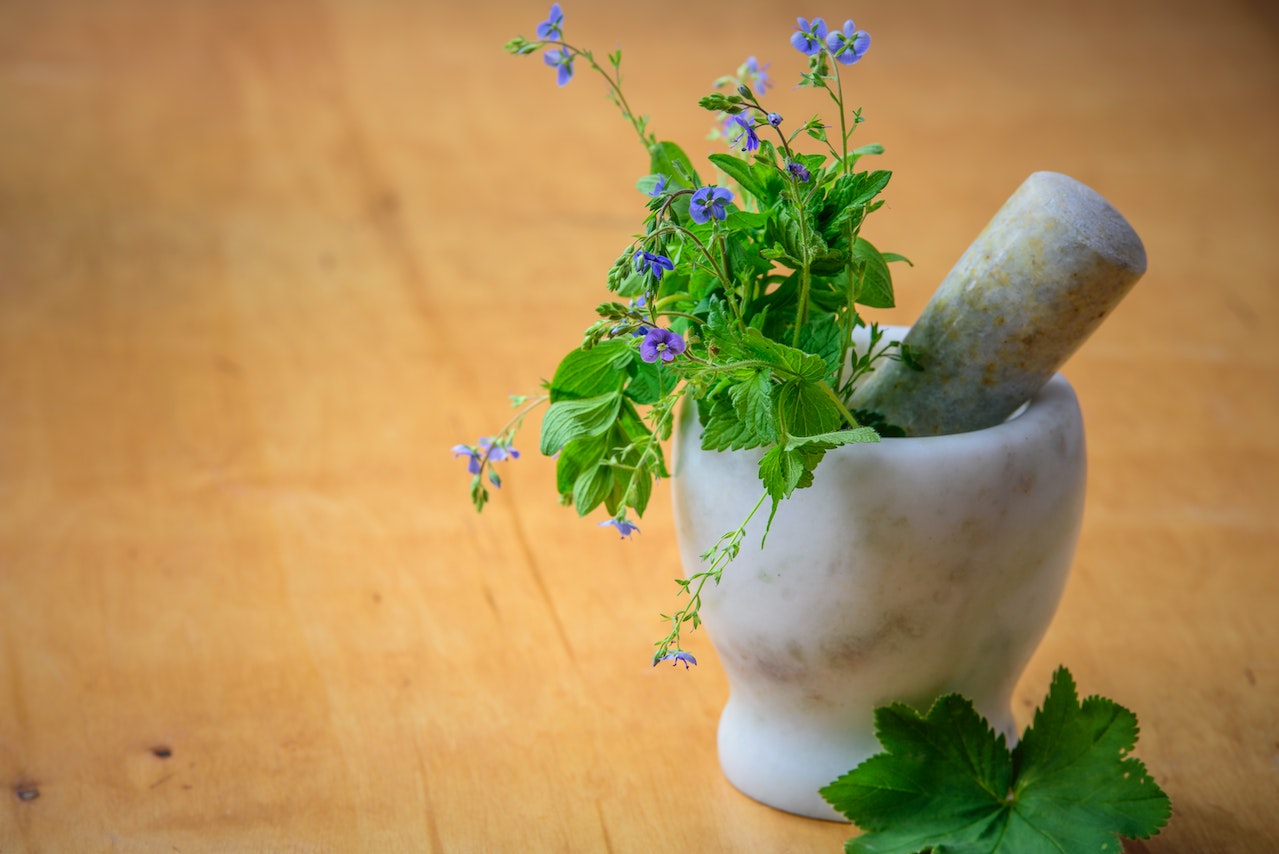In a world where modern medicine often takes center stage, it’s important not to overlook the healing potential of nature. Plants have been used for centuries in traditional medicine systems worldwide, offering a wealth of therapeutic benefits. In this article, we’ll explore seven remarkable medicinal herbs known for their natural healing properties. From soothing digestive troubles to boosting the immune system, these plants can play a significant role in supporting our well-being.
1. Turmeric (Curcuma longa):
Turmeric, often referred to as the “golden spice,” has gained popularity for its potent anti-inflammatory properties. The active compound in turmeric, curcumin, has been extensively studied for its potential to alleviate chronic pain, reduce inflammation, and support joint health. Studies have shown that curcumin can inhibit inflammatory pathways in the body, making it a valuable herb for conditions like arthritis. Incorporating turmeric into your diet or taking supplements can offer a natural approach to managing inflammation and promoting overall well-being.
2. Ginger (Zingiber officinale):
With its distinct flavor and aromatic properties, ginger has been used for centuries to treat various ailments. Known for its digestive benefits, ginger can help soothe nausea, reduce bloating, and relieve indigestion. The active compounds in ginger, such as gingerol, have anti-inflammatory and antioxidant effects, which can support digestive health and reduce inflammation in the body. Ginger has also been found to be effective in managing muscle soreness and joint pain. Whether enjoyed in tea, added to recipes, or taken as a supplement, ginger is a versatile herb for promoting digestive wellness and reducing inflammation.
3. Echinacea (Echinacea purpurea):
Echinacea is a flowering plant renowned for its immune-boosting properties. Rich in antioxidants, this herb stimulates the production of white blood cells, enhancing the body’s defense against infections. Research suggests that echinacea can shorten the duration and severity of the common cold and flu symptoms. It is commonly used as a natural remedy to support the immune system and prevent respiratory infections. Incorporating echinacea into your wellness routine, either through teas, tinctures, or supplements, can provide valuable immune support.
4. Lavender (Lavandula angustifolia):
Known for its calming and soothing properties, lavender is a popular herb for promoting relaxation and reducing stress. The aromatic compounds in lavender, such as linalool, have been shown to have anxiolytic effects, helping to alleviate anxiety and improve sleep quality. Lavender is commonly used in aromatherapy to induce a sense of calm and relaxation. It can be used in the form of essential oil, herbal tea, or bath salts to promote a more peaceful and restful state of mind.
5. Peppermint (Mentha piperita):
Peppermint is a refreshing herb with multiple health benefits. It has been traditionally used to alleviate digestive discomfort, such as bloating, gas, and indigestion. Peppermint’s active compound, menthol, has a soothing effect on the gastrointestinal tract, making it a valuable herb for digestive health. It can help relax the muscles of the digestive system, relieve spasms, and promote healthy digestion. Enjoying a cup of peppermint tea or using peppermint oil can provide relief and promote a healthy digestive system.
6. Chamomile (Matricaria chamomilla):
Chamomile is well-known for its calming properties and has been used for centuries to promote relaxation and support sleep. This herb contains compounds that bind to certain receptors in the brain, producing a sedative effect. Drinking chamomile tea before bed can help ease insomnia and improve sleep quality. Moreover, chamomile’s anti-inflammatory properties make it a beneficial herb for soothing skin irritations and promoting skin health. It can be used topically in the form of chamomile-infused creams or oils to alleviate skin conditions such as eczema or sunburn.
7. Ginseng (Panax ginseng):
Ginseng is a renowned adaptogenic herb that helps the body adapt to stress and restore balance. It has been used in traditional Chinese medicine for centuries to enhance vitality and promote overall well-being. Ginseng is believed to boost energy, improve cognitive function, and support the immune system. The active compounds in ginseng, known as ginsenosides, have antioxidant and anti-inflammatory properties that contribute to its health benefits. Ginseng can be consumed as a tea or taken as a supplement to combat fatigue, improve mental clarity, and enhance overall physical performance.
Incorporating Medicinal Herbs into Your Daily Routine:
Now that we’ve explored these seven remarkable medicinal herbs, you may be wondering how to incorporate them into your daily routine. Here are a few suggestions:
- Herbal Teas: Enjoy the benefits of these herbs by brewing them into soothing herbal teas. You can use dried herbs or tea bags specifically formulated with these medicinal herbs for convenience.
- Supplements: If you prefer a more concentrated form, you can find herbal supplements containing these medicinal herbs in various formats such as capsules, tinctures, or powders. It’s important to consult with a healthcare professional before starting any new supplements.
- Culinary Uses: Many of these herbs can be used in cooking to add flavor and health benefits to your meals. For example, turmeric can be added to curries or smoothies, while ginger can enhance stir-fries and baked goods.
- Topical Applications: Some herbs like lavender and chamomile can be used topically in the form of essential oils or infused creams. They can be applied to the skin for their calming, soothing, or anti-inflammatory effects.
Conclusion
Harnessing the healing power of plants is a wonderful way to support your overall well-being. The seven medicinal herbs mentioned in this article – turmeric, ginger, echinacea, lavender, peppermint, chamomile, and ginseng – offer a natural and holistic approach to health and wellness. From reducing inflammation and boosting the immune system to promoting relaxation and soothing digestive issues, these herbs can be valuable additions to your daily routine. Embrace the benefits of nature and explore the incredible healing potential of these medicinal herbs.
Remember, it’s essential to consult with a healthcare professional or herbalist before incorporating any new herbs or supplements into your routine, especially if you have any underlying health conditions or are currently taking medications.










